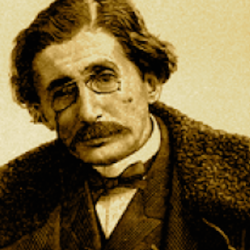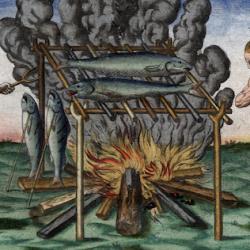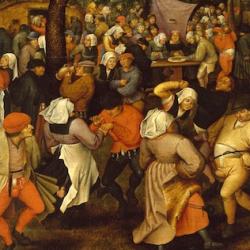Rosenstock-Huessy scoffs at the notion of presuppositionless sociology (Sociology, vol. 1, 26). In a moving tribute to the life and work of Saint Simon, he argues that, on the contrary, “Everything known to sociology is known only because suffering is a fundamental fact. From the very first, her only knowledge is that human beings suffer, that accordingly something is not as it should be. Indeed she can scarcely know anything else. And so she breaks with the liberal wishes and the liberal man, whose spirit commences with the true, the good, and the beautiful. But sociology admits to having sprung from fear, fear of the voice, of suffering, of the injustices that fill the world and provide her with the only possible orientation” (26).
Saint Simon wanted to “create a therapeutic science for temporal systems of order,” a sort of pastoral care for “secular” society. Sociology was, he thought, “a science of sinners, of Christians, of sufferers. What a contrast to all pre-sociological science, which seems to be the privilege of the just, the educated, the sage, the philosophical thinker, the virtuous, and the reasonable, and therefore ignores the authentic humankind of the last 1900 years, instead of beginning with them” (27).
Saint Simon was willing to take on the suffering, begin with suffering humanity, rather than with bright abstractions. He gave up his fortune and status to meet and serve the poor. His entire life was an experiment in sociology.
Following Saint Simon’s example, sociology cannot be a spectator sport. It cannot be conducted from a distance. Theoretically, that is impossible, because the sociology lives within the society he tries to explain. And it’s unethical, an evasion of responsibility:
“Participation is the only way to cleave open the shell of genuine knowledge. Hence sociologists must learn to suffer. Sufferings are not theoretical. . . . For any sociologist whatsoever, as long as he can laugh, think, speak, or write, stands amid the social processes that he thinks or speaks or writes about. He cannot stand outside” (35).











